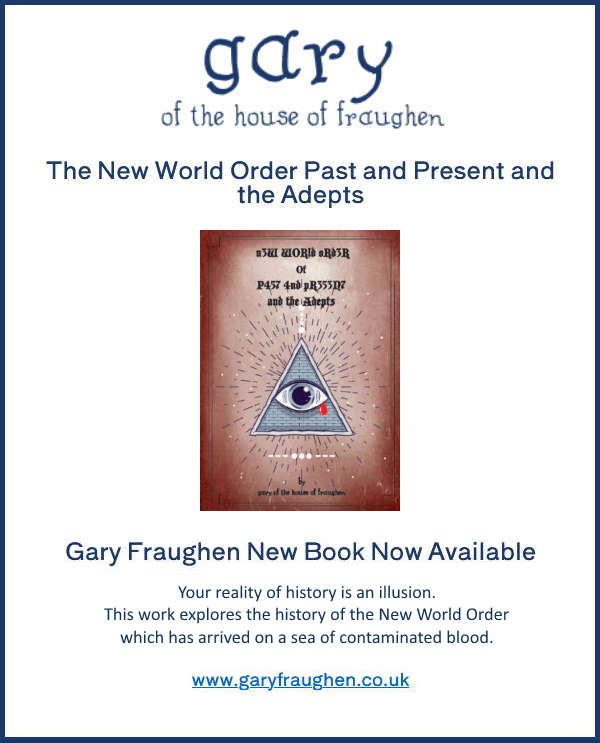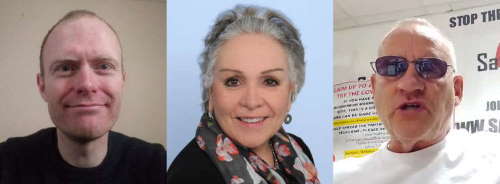NATO returns to its roots
Sat 4:55 pm +00:00, 2 Jul 2022 3It’s your demon

The Russian Foreign Ministry considered that NATO in relation to Russia returned to the schemes of the Cold War
NATO “starts an arms race”, which will not do without the “mandatory “demonization” of the enemy” – that is, Russia. With such an analysis of the summit of the North Atlantic Alliance held this week, Deputy Foreign Minister Alexander Grushko, who oversees European security issues in the department, made a statement on Friday. According to him, NATO has returned to the Cold War schemes, drawing not only Europe, but the whole world into a dangerous confrontation. Allies in the alliance, meanwhile, began to work out concrete steps within the framework of the new strategic concept adopted the other day. On Friday, the Foreign Ministers of Great Britain and France discussed in detail the “threats from Russia and China”, as well as the further increase in assistance to Ukraine.

According to Deputy Foreign Minister of the Russian Federation Alexander Grushko, at the Madrid summit, NATO “completed an evolutionary somersault in its development and returned to its roots – the schemes for ensuring military security during the Cold War”
Photo: Igor Ivanko, Kommersant
According to Deputy Foreign Minister of the Russian Federation Alexander Grushko, at the Madrid summit, NATO “completed an evolutionary somersault in its development and returned to its roots – the schemes for ensuring military security during the Cold War”
Photo: Igor Ivanko, Kommersant
“Recently, the representative of the White House once again repeated that Russia should not be afraid of NATO, no one should be afraid at all, because NATO is a defensive alliance. But this is already ridiculous, and for adults to say such obvious nonsense, I would say, it’s just a shame,” said Russian Foreign Minister Sergei Lavrov, speaking on Friday to students and teachers of the Belarusian State University. The minister recalled that after the collapse of the USSR, NATO “moved to the East five times”, and “if you yourself advance, develop the territory, deploy armed forces and military infrastructure there, then this is not defense, it is something opposite.”
Deputy Minister Alexander Grushko, who spoke at the site of the Valdai International Discussion Club, spoke more specifically on the same topic. He analyzed in detail the main decisions of the NATO summit, held on June 28-30 in Madrid, and predicted the possible consequences of such steps.
The main preliminary conclusion, which the diplomat said: “In Madrid, NATO completed an evolutionary somersault in its development and returned to its roots – the military security schemes of the Cold War.”
Recalling that the heads of state and government of NATO member countries recognized Russia as a serious threat, he noted: “This is a serious turn, this is a real bid to confront us, to contain Russia on all fronts, in all areas.” “We are talking not only about political installations that will work for a long time, but the process of military construction will be built under these installations. NATO starts an arms race. And again, we know from history that such an arms race, aggressive military construction will require the obligatory “demonization” of the enemy,” the diplomat added.
Recall that on June 29, the leaders of the NATO member countries approved a new strategic concept, in which the Russian Federation is called the “most significant and direct threat” to the security of NATO allies, as well as to peace and stability in the Euro-Atlantic region in general. Russia, as noted in the document, “seeks to establish spheres of influence and direct control through coercion, subversion, aggression and annexation.” The summit declaration combines the threat posed by Moscow and the terrorist threat in one paragraph. It also denounces Russia’s “aggressive war against Ukraine”, which “profoundly undermines international security and stability” and calls it “a flagrant violation of international law” ( see Kommersant of June 30 ).
Alexander Grushko called the decision to expand NATO at the expense of Finland and Sweden “one of the saddest episodes in the evolution of European security.” The diplomat said he did not understand what made these two countries rush into the alliance. According to his forecast, Finland and Sweden will lose their independence and turn into a “NATO periphery.”
The security situation in Northern Europe, according to Alexander Grushko, will only worsen due to the expansion of the alliance. “Soon, NATO will start talking about the fact that the biggest vulnerability is the Russian-Finnish border, which needs to be protected, because there are 1.3 thousand kilometers, which means that it is necessary to deploy troops and so on,” he suggested. to the deterioration of regional security, significantly complicate the situation in the north of Europe. According to the forecast of the Deputy Foreign Minister of the Russian Federation, from the most militarily calm region of Europe, this territory will be turned “into an arena, if not of military confrontation, then definitely of military rivalry.”
Recall that the authorities of Finland and Sweden decided to initiate the process of joining NATO after the start of the Russian military operation in Ukraine, which they regarded as a threat to their own security. Opinion polls in both countries showed a sharp jump in support for the idea of joining the alliance in recent months. This trend was most clearly manifested in Finland, which has maintained military neutrality since 1948. Since the mid-1990s, it has been actively developing cooperation with NATO and individual members of the alliance, but until recently, the idea of full-fledged integration into the North Atlantic bloc did not enjoy significant support. Back in January, only 28% of Finns were in favor of joining NATO. But since February, the situation has changed dramatically: according to the latest polls, 79% of Finns want to join NATO.
Until recently, one of the members of the alliance, Turkey, opposed the accession of Finland and Sweden to NATO. Several rounds of talks covering a range of issues came to nothing. However, on the first day of the summit, it was announced that all of Ankara’s objections had been withdrawn. However, as subsequent statements showed, the outcome of the negotiation process could still be positive for Moscow (and, accordingly, negative for Helsinki and Stockholm). On Friday, Turkish President Recep Tayyip Erdogan warned that the country’s authorities will return to their original position on NATO expansion (that is, they will block this process) if Sweden and Finland “try to delay the implementation of their commitments or are hypocritical.”
Speaking at the Valdai event, Alexander Grushko also assessed NATO’s decision to recognize China as a systemic opponent and competitor of the alliance.
“This is a very significant turn, NATO’s turn into the Pacific region, going beyond the initial mandate of the alliance, which was still involved in maintaining security in the North Atlantic region,” Alexander Grushko noted. “The main question that should be asked to the people who prescribed these wording (in the new strategic concept of NATO . – “Kommersant”): and in what region does China threaten NATO interests? I think the answer is clear.” According to the Deputy Foreign Minister of the Russian Federation, “NATO is globalizing, declaring the whole world a zone of its interests and, in fact, calling into question China’s right to develop as one of the poles of the already established multipolar world.” Recall that the new NATO strategic concept says that “China’s declared ambitions and its policy of coercion challenge the interests, security and values of the alliance,” so he cannot help but react to this.
According to Alexander Grushko, “hostile military planning and NATO’s hostile policy” towards Russia and China “create an explosive mixture.” “It is difficult to say what concentration of political efforts will be required or what dramatic events in the field of military security in Europe may occur in order to reverse the dangerous spiral into which NATO is drawing not only the whole of Europe, but now the whole world,” he concluded.
In the meantime, having adopted a new strategic concept – a kind of “road map” for about ten years – the members of the alliance have already begun to work out concrete steps. So, on Friday, the Foreign Ministers of Great Britain and France Liz Truss and Catherine Colonna met in a bilateral format. According to the British Foreign Office, the ministers reaffirmed that the two countries are united “in their response to the Russian war in Ukraine”, as well as in support of the “Ukrainian struggle for freedom and self-determination.” The meeting reportedly discussed plans to increase aid to Kyiv, cooperation to expand sanctions to “undermine Putin’s military machine,” and methods to “counter the free world against threats from countries such as Russia and China by strengthening security and economic ties.” “. In general, everything was discussed















The hideous power of propaganda is shown in the changed attitude of the Swedish and Finnish populations. All you need is control of the media and you can control popular opinion, it’s grotesque.
Edward Bernays and Group Psychology: Manipulating the Masses
https://youtu.be/lOUcXK_7d_c
Psychological Tricks That Make People WILLINGLY Give Up Their Freedom W/ Prof. Mattias Desmet| AMP
https://youtu.be/IqPJiM5Ir3A